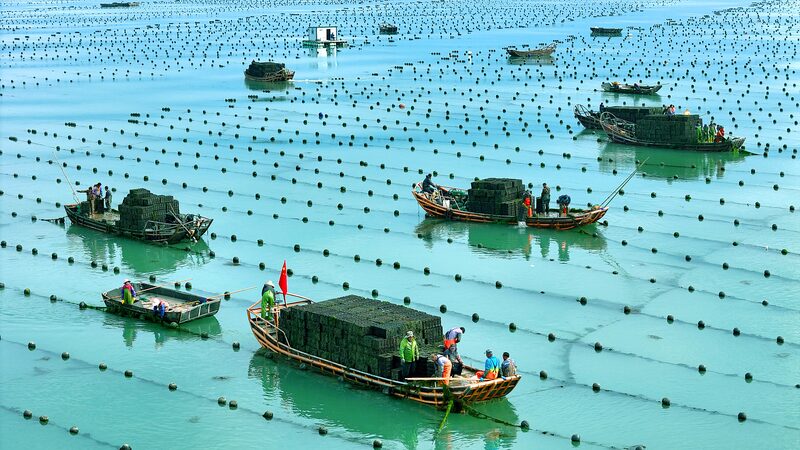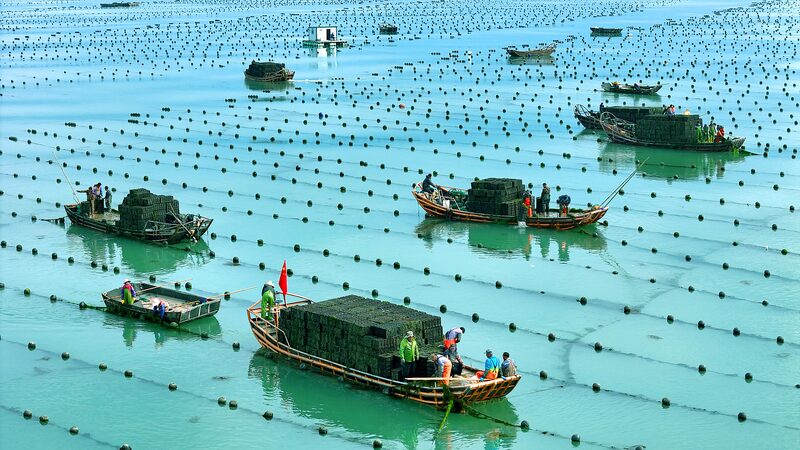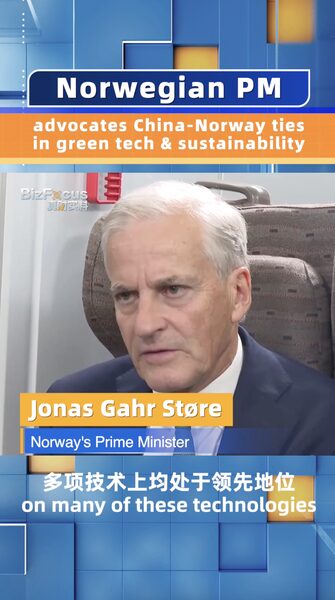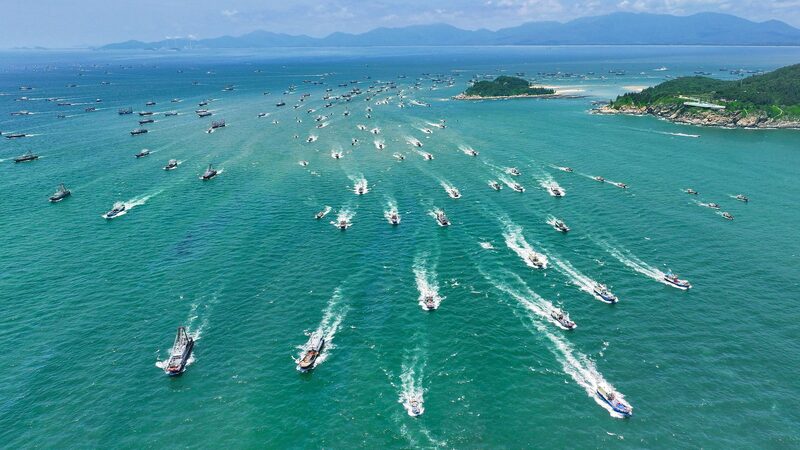China’s rapid development in the fishery industry has positioned the country as the world’s largest producer of aquatic products, yielding approximately 71.16 million tonnes in 2023. Aquatic products offer high-quality animal protein and have become an essential food source globally.
However, the booming industry faces challenges. Inland lakes, ponds, and coastal areas are reaching saturation, and marine fishing resources are nearing depletion. Environmental and resource pressures necessitate innovative solutions to ensure food security and promote human well-being.
Recognizing these challenges, China is expanding into deep-sea aquaculture. In 2017, China completed the world’s first large-scale deep-sea aquaculture platform, Norway’s “Ocean Farm 1,” marking a significant milestone by extending marine aquaculture to depths of 300 meters. This groundbreaking platform garnered global attention upon its launch.
Inspired by Norway’s advanced fisheries development, the Chinese government began focusing on deep-sea aquaculture. In 2019, ten ministries jointly issued the “Several Opinions on Accelerating the Green Development of the Aquaculture Industry,” advocating for green deep-sea aquaculture and encouraging the construction of large-scale intelligent deep-sea platforms.
Advancing this initiative, in June 2023, eight ministries, including the Ministry of Agriculture and Rural Affairs, released the “Opinions on Accelerating the Development of Deep-Sea Aquaculture.” This document outlines key tasks to expedite the development of deep-sea aquaculture across the entire industry chain, emphasizing critical fields and essential links.
In October 2023, the State Council issued the white paper “Development of China’s Distant-Water Fisheries,” providing a comprehensive overview of China’s development concepts, principles, policies, and achievements in distant-water fisheries.
The shift toward deep-sea aquaculture represents China’s commitment to sustainable development and addressing global food security challenges. By investing in advanced technologies and green practices, China aims to expand its capacity to produce aquatic products while preserving marine ecosystems.
As traditional fishing grounds face limitations, deep-sea aquaculture offers a new frontier for growth. This strategic move not only supports national food security but also contributes to global efforts to build a sustainable future.
Reference(s):
Promoting the building of an ocean community of shared future
cgtn.com






